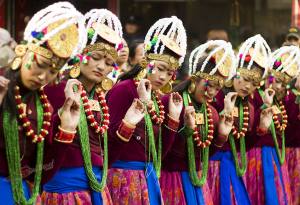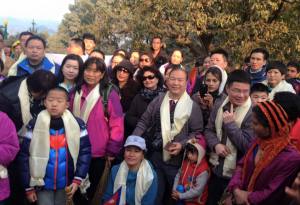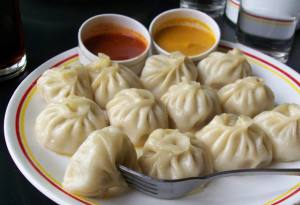Teej
Teej, which is celebrated in the month of Bhadra, is one of the main important festivals for Nepali women. It generally falls on late August or early September. It is a three-day-long Hindu festival which is dedicated to Lord Shiva and Goddess Parvati. On this occasion they will have splendid feasts as well as rigid fasting.
According to Hindu mythology, it is believed that Goddess Parvati and Lord Shiva were united on this day. For this Parvati had to endure penance. It is said that, she took 108 births on Earth before Lord Shiva accepted her as his wife. Since then, this day is considered to be an auspicious day and it is believed that whosoever remembers her on this day will be blessed with a happy and married life and all her desires will be fulfilled.
The 3 days festival is a symbol of happiness and joy in a married life. On this day, women dress up like newlyweds in red and green color and try to look best to lure their husbands. They also apply “Mehendi” in their hands and wear colorful bangles which are symbolism of a newly-wed bride. Each day has its own significance. The first day is called “Dar Khani Din” which means women who go on fasting the very next day eat a very big feast or heavy food.
The second day is the fasting day. On this day, the devotees do not eat and drink the whole day. They first offer worship to Lord Shiva and spend the rest of the day by singing and dancing. Most of the women are seen in holy sites on this day and men are not allowed to enter the most of the Shiva Temples on this day. Outside Kathmandu valley too, women gather in public places like roads and markets and enjoy the festivals by singing and dancing. Though the women fast throughout the day – refusing to take even a drop of water, Teej brings smiles on the face of every woman.
The third day is for offering prayers to the deity. The married women pray for the long life of their husbands and the unmarried girls pray for the good husbands.
It is a rare opportunity for many married women in Nepal to go to their mother’s home due to busy schedules. The parents invite their daughters or send someone to bring their daughters to their home a day or two before the festivals. So this festival brings joy and happiness to every woman where they can share their joys and sorrows.
Recent Post
Related Blog(s)
Other Categorie(s)




